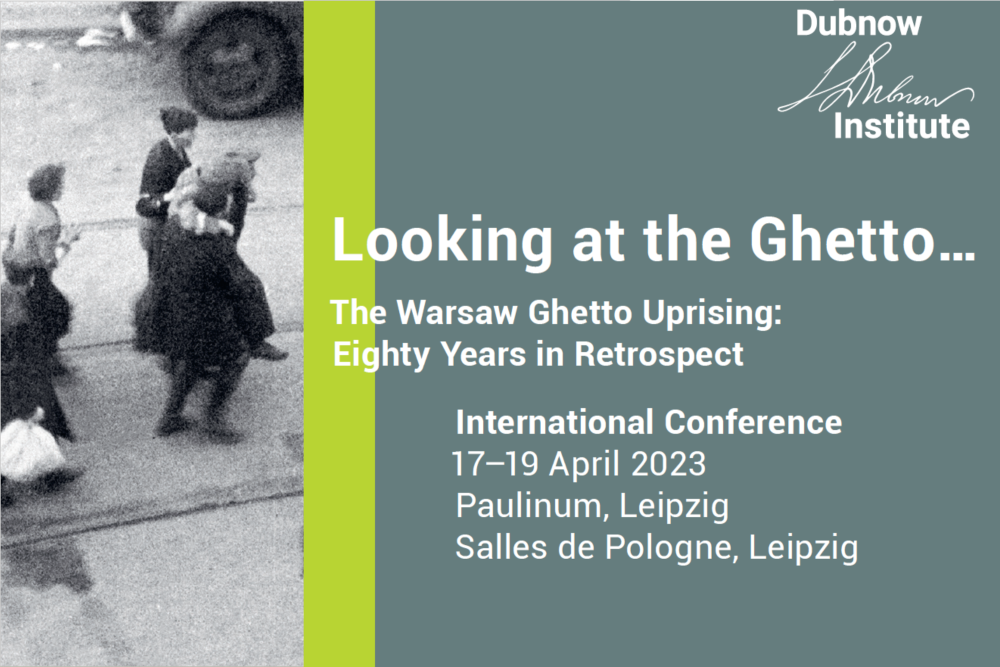- News
- Events
- Oneg Shabbat
- Collections
- Research
- Exhibitions
- Education
- Publishing Department
- Genealogy
- About the Institute
- Bookstore

.png)
Held in Leipzig on April 17–19 2023, the international conference on »Looking at the Ghetto ...« commemorates the Warsaw Ghetto Uprising 80 years ago. The lectures will be digitally broadcast and will be held in German and English, each simultaneously translated. The keynote lecture will be given by the renowned historian Jan Tomasz Gross.
On April 19, 80 years ago, insufficiently armed Jews rose up in the ghetto, which had been established in the center of Warsaw, to prevent deportation to the death camps. They engaged in fierce fighting with the German occupation forces for several weeks. During the suppression, the Germans completely destroyed the ghetto and murdered most of the people who remained there.
The memory of the uprising became controversial almost immediately after its repression by German forces. In 1948, a memorial was inaugurated on the ruins of the Warsaw Ghetto. When the West German Chancellor Willy Brandt knelt before that monument during his state visit to Poland in 1970, his gesture aroused agitated debates in Germany and beyond. In Israel, alongside the competition between left and right over the legacy of the uprising, a controversy arose over the meaning of heroism, between struggle for survival and active resistance. In Poland, Marek Edelman's involvement in the Solidarity movement marked the entanglement of the commemorative history of the uprising with contemporary Polish history. Jan Błoński's 1987 article, »Poor Poles Look at the Ghetto« triggered an emotional debate regarding the role of the Polish population facing the Jewish Holocaust, which continues in different forms until today.
This conference will bring together the historical event and its memory. Larger questions of universalism and particularism, nationalization and acculturation, experience and memory will be invoked, concerning the destruction of anthropological certitudes, the transformation of Jewish self-understanding, and the character of the ghetto as a point of transit between life and death.
For the conference, the Leibniz Institute for Jewish History and Culture – Simon Dubnow, Leipzig is cooperating with Beit Lohamei Haghetaot – the Ghetto Fighters' House Museum; the Emanuel Ringelblum Jewish Historical Institute, Warsaw; the Haifa Interdisciplinary Unit for Polish Studies, University of Haifa; Moreshet – the Mordechai Anielevich Memorial Holocaust Study and Research Center; the Museum of the History of Polish Jews POLIN, Warsaw; and the Professorship for Slavic Literature and Cultural Studies, Leipzig University. The conference is funded by the Alfred Landecker Foundation.
For more information:
See the conference programme:
Image material
In the image database of the United States Holocaust Memorial Museum, there are photographs taken by the Polish fireman Leszek Grzywaczewski during the uprising. These have only recently been discovered.